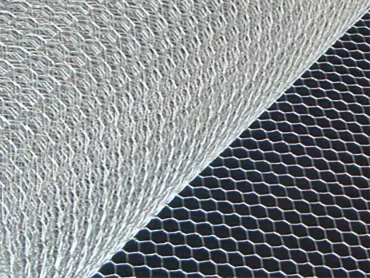Dis . 15, 2024 15:39 Back to list
Field and Farm Fence Supply Solutions for Your Agricultural Needs
Field Fence Supplies Ensuring Durability and Security for Your Agricultural Needs
In the world of agriculture, fencing is an essential component that plays a crucial role in protecting crops, livestock, and property. Among various fencing solutions available, field fencing has proven to be one of the most effective and durable options. As farmers and landowners seek to fortify their agricultural lands, understanding the types of field fence supplies available and their applications becomes imperative.
Types of Field Fencing
Field fencing comes in many types, each designed for specific needs and environments. The most common types include barbed wire fence, woven wire fence, high-tensile fence, and electric fence.
1. Barbed Wire Fencing This type consists of standard wire with barbed points at regular intervals. Barbed wire is economical and provides a deterrent against intrusion. It’s primarily used for cattle and horse fencing but can sometimes pose risks to animals if not installed properly.
2. Woven Wire Fencing Comprising vertical and horizontal wires, woven wire fencing is more robust compared to barbed wire. It’s suitable for containing smaller livestock such as sheep, goats, or pigs. This fencing type is especially useful in areas where animal depredation may be a concern, as it provides a secure barrier that prevents animal escape or intrusion.
3. High-Tensile Fencing Made from thicker wires, high-tensile fencing is known for its strength and durability. When properly tensioned, it can withstand significant pressure and is capable of containing large animals like cattle and horses. High-tensile fencing is an investment in longevity, as it requires less frequent replacement and maintenance.
4. Electric Fencing This innovative fencing option uses electric current to deter animals from breaching the perimeter. It is effective for a variety of livestock and can be combined with other types of fencing for enhanced security. Electric fencing is particularly beneficial for rotational grazing systems, allowing farmers to easily move livestock from pasture to pasture.
Key Supply Components
When considering field fencing, it's essential to source high-quality supplies
. The following components are crucial for successful installation and longevity- Posts Fence posts can be made from wood, metal, or plastic. Each material has its advantages; wooden posts are typically more aesthetically pleasing, while metal posts offer enhanced durability. Installing posts correctly is vital to ensure the structure remains stable over time.
- Wire Selecting the right wire gauge and material is imperative for the overall integrity of the fence. Thicker gauge wires provide added strength, while specialized coatings (like galvanized or vinyl) can enhance longevity by preventing rust and corrosion.
field fence supplies

- Gate Hardware Gates are often the most used parts of a fencing system, so choosing robust gate hardware is crucial. Heavy-duty hinges and locks will ensure easy access while maintaining security.
- Insulators For electric fencing, high-quality insulators are essential to prevent electrical leakage. They help ensure the wire remains electrified, deterring animals effectively.
Installation Considerations
Installing field fencing requires careful planning and execution. Here are essential factors to consider
- Terrain Assess the land where the fence will be installed. Changes in terrain such as hills, valleys, or rocky areas may influence the type of fencing to use and how it should be installed.
- Animal Behavior Understanding the behavior of the animals you intend to contain will help in determining the type of fence needed. For example, some animals are more prone to escaping and may require a sturdier fence.
- Local Regulations Be sure to check local zoning laws and regulations, as there may be guidelines on fencing height, type, and placement, which must be adhered to.
Maintenance for Longevity
Finally, regular maintenance is critical in prolonging the life of your field fencing supplies. Routine inspections can help identify wear and tear, rusting, or loose wires. Addressing these issues promptly will prevent greater damages and ensure the fence continues to serve its purpose effectively.
Conclusion
Field fencing is an integral part of any agricultural operation, providing security and protection for livestock and crops. With the right supplies and proper installation, farmers can create a lasting barrier that safeguards their investments. Investing in quality field fence supplies not only enhances farm security but also contributes to the overall efficiency and productivity of agricultural practices. As the agricultural landscape continues to evolve, so too do the materials and technologies available for fencing, ensuring that they remain an indispensable part of modern farming.
-
The Power of Iron Wire: A Versatile Solution for Multiple Applications
NewsJun.19,2025
-
Reliable Hydraulic Fittings for Optimal Performance
NewsJun.19,2025
-
Quality Roofing Nails for Every Project
NewsJun.19,2025
-
Hexagonal Wire Mesh: Versatile and Durable Solutions for Every Project
NewsJun.19,2025
-
Enhancing Security with Barbed Wire Solutions
NewsJun.19,2025
-
Binding Wire: The Essential Material for a Variety of Applications
NewsJun.19,2025









